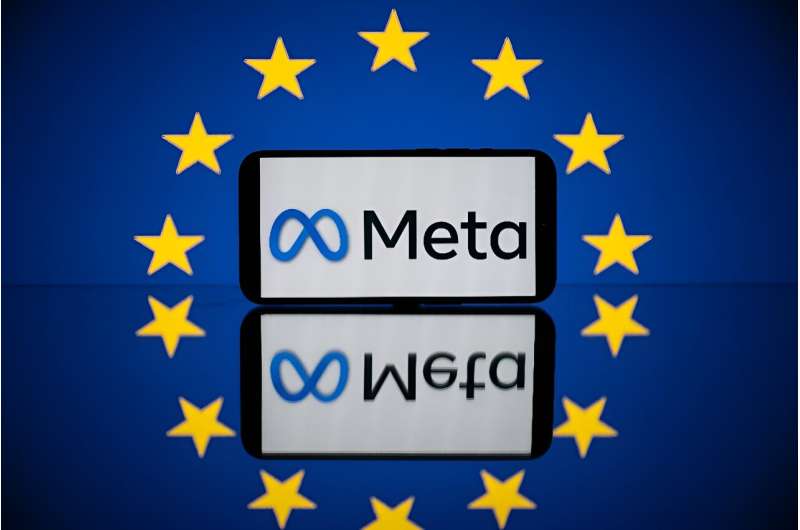This article has been reviewed according to Science X's editorial process and policies. Editors have highlighted the following attributes while ensuring the content's credibility:
fact-checked
reputable news agency
proofread
EU opens disinformation probes into Meta, TikTok

The EU announced probes Thursday into Facebook owner Meta and TikTok, seeking more details on the measures they have taken to stop the spread of "illegal content and disinformation" after the Hamas attack on Israel.
The European Commission said it had sent formal requests for information to Meta and TikTok respectively in what is a first procedure launched under the EU's new law on digital content.
The EU launched a similar probe into billionaire mogul Elon Musk's social media platform X, formerly known as Twitter, last week.
The commission said the request to Meta related "to the dissemination and amplification of illegal content and disinformation" around the Hamas-Israel conflict.
In a separate statement, it said it wanted to know more about TikTok's efforts against "the spreading of terrorist and violent content and hate speech".
The EU's executive arm added that it wanted more information from Meta on its "mitigation measures to protect the integrity of elections".
Meta and TikTok have until October 25 to respond, with a deadline of November 8 for less urgent aspects of the demand for information.
The commission said it also sought more details about how TikTok was complying with rules on protecting minors online.
Meta insisted it was addressing the issues raised.
"Our teams are working around the clock to keep our platforms safe, take action on content that violates our policies or local law, and coordinate with third-party fact checkers in the region to limit the spread of misinformation," a Meta spokesman said.
Meta would be happy to provide further information to the commission, he added.
TikTok said it was reviewing Brussels' request and would publish a report next week with "more information about our ongoing work to keep our European community safe".
Last week, TikTok said it removed more than 500,000 videos and live streams, while Meta said it removed or marked as disturbing more than 795,000 pieces of content in Arabic and Hebrew.
Fight against disinformation
The European Union has built a powerful armory to challenge the power of big tech with its landmark Digital Services Act (DSA) and a sister law, the Digital Markets Act, that hits internet giants with tough new curbs on how they do business.
The EU's fight against disinformation has intensified since Moscow's invasion of Ukraine last year and Russian attempts to sway European public opinion.
The issue has gained further urgency after Hamas' assault on October 7 on Israel and the aftermath which sparked a wave of violent images that flooded the platforms.
The DSA came into effect in August for "very large" platforms, including Meta and TikTok, that have more than 45 million monthly European users.
The DSA bans illegal online content under threat of fines running as high as six percent of a company's global turnover.
The EU's top tech enforcer, Thierry Breton, sent warning letters to tech CEOs including Meta's Mark Zuckerberg, TikTok's Shou Zi Chew and Sundar Pichai of YouTube owner Alphabet.
Growing EU fears
Breton, EU internal market commissioner, told the executives to crack down on illegal content following Hamas' attack.
Meta said last week that it was putting special resources towards cracking down on illegal and problematic content related to the Hamas-Israel conflict.
On Wednesday, Breton expressed his fears over the impact of disinformation on the EU.
"The widespread dissemination of illegal content and disinformation... carries a clear risk of stigmatization of certain communities, destabilization of our democratic structures, not to mention the exposure of our children to violent content," he said.
AFP fact-checkers have found several posts on Facebook, TikTok and X promoting a fake White House document purporting to allocate $8 billion in military assistance to Israel.
And several platforms have had users passing off material from other conflicts, or even from video games, as footage from Israel or Gaza.
Since the EU's tougher action on digital behemoths, some companies, including Meta, are exploring whether to offer a paid version of their services in the EU.
© 2023 AFP





















